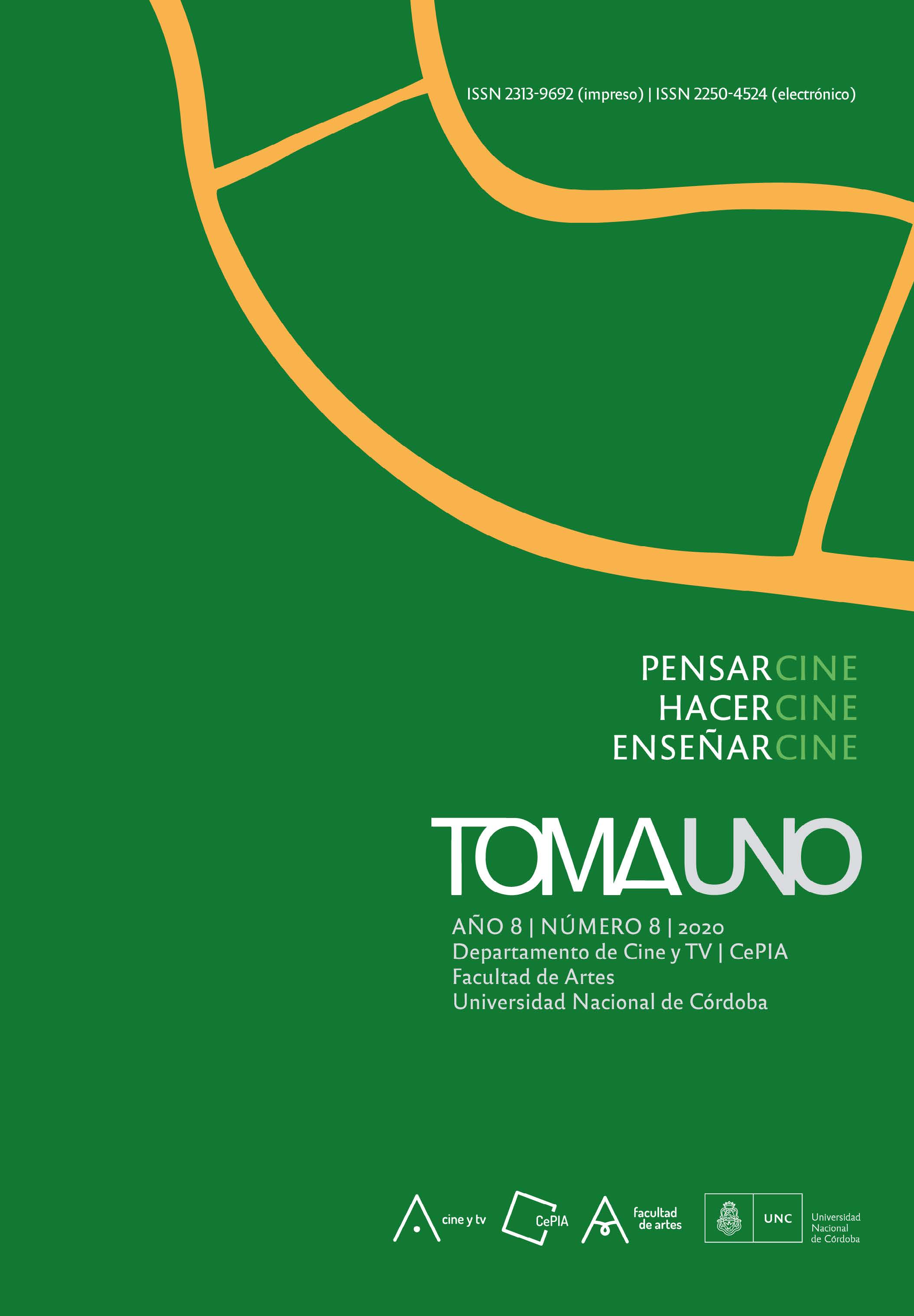Dissident representations in two debut films of the first years of the post-dictatorship: Otra historia de amor (Américo Ortiz de Zárate, 1986) y Abierto de 18 a 24 (Víctor Dínenzon, 1988)
DOI:
https://doi.org/10.55442/tomauno.n8.2020.30786Keywords:
post-dictatorship cinema, democracy cinema, dissident representations, debut films, gender and sexualityAbstract
During the convulsive eighties, two films were released in Argentina that record particular approaches to sex-dissent: Otra historia de amor (Américo Ortiz de Zárate, 1986) and Abierto de 18 a 24 (Víctor Dínenzon, 1988). In the first case, that “other story” starring Jorge and Raúl breaks with some of the stereotypes that Argentininian cinema carried since the thirties. In the second, the (in)visibility of sex-dissent is thematized in a social context in which the repression (in a broad sense) did not finish dissipating. In both films, the plots advance with the imprint of the desire of their protagonists.
This paper proposes to analyze, in these filmic texts, the ways in which the subjectivity of the characters is constructed and the discourses that cross them, in a context that remained in the constant state of agitation that marked the transit between dictatorship and democracy in Argentina. In this peculiar framework, Argentinian cinema tried to project itself to the world giving samples of the recently reconquered democratic values.
__
ARK: http://id.caicyt.gov.ar/ark:/s22504524/ika6ppzn6
Downloads
References
Bernini, E. (Ed.) (2018). Después del nuevo cine: diez miradas en torno al cine argentino contemporáneo. Ciudad Autónoma de Buenos Aires: Editorial de la Facultad de Filosofía y Letras Universidad de Buenos Aires.
(1987) Catálogo del nuevo cine argentino 1984/1986. Buenos Aires: Instituto Nacional de Cinematografía.
Choi, D. (2010). La ironía política y una imagen de menos. De La historia oficial a Garage Olimpo. En De Alfonsín al menemato 1983-2001: literatura argentina siglo XX (pp. 133-148). Buenos Aires: Paradiso, Fundación Crónica General.
Garbatzky, I. (2013). Los ochenta recienvivos: poesía y performance en el Río de la Plata: Buenos Aires, 1984 – Montevideo, 1993. Rosario: Beatriz Viterbo Editora.
Gramsci, A. (1984). Cuadernos de la cárcel 3. México: Ediciones Era.
López, Daniel (1989). Catálogo del nuevo cine argentino 1987/1988. Buenos Aires: Instituto Nacional de Cinematografía.
Lozano, E. (2015). Sexualidades disidentes en el teatro. Buenos Aires: Biblos.
Lucena, D. y G. Laboureau (2016). Modo mata moda: arte, cuerpo y micro política en los 80. La plata: EDULP.
Melo, A. (Comp.) (2008). Otras historias de amor: gays, lesbianas y travestis en el cine argentino. Buenos Aires: Ediciones Lea.
Montes, V. (2020). Transición cinematográfica y posdictadura. En Actas IV Jornadas de Investigación del Instituto de Artes del Espectáculo, ISBN 978-987-8363-22-6.
Noy F. (2015). Historias del under. Buenos Aires: Reservoir Books.
Rossi, M. J. y M. S. Aguilar (2008). La identidad como destino. Disidencia sexual y representación fílmica. En Otras historias de amor: gays, lesbianas y travestis en el cine argentino. Buenos Aires: Ediciones Lea.
Usubiaga, V. (2012). Imágenes inestables: artes visuales, dictadura y democracia en Buenos Aires. Buenos Aires: Edhasa.
Williams, Raymond (1997). Marxismo y literatura. Barcelona: Ediciones Península S.A.
Carreras, E. (director). (1933). Los tres berretines (largometraje / ficción). País: Argentina. Productora: Lumiton.
Dawi. E. (director) (1984). Adiós Roberto… (largometraje / ficción). País: Argentina. Productora: Producciones Dawi SA.
Dínenzon, V. (director) (1988). Abierto de 18 a 24 (largometraje / ficción). País: Argentina. Productora: Kankún SA Cine.
Ortíz de Zárate, A. (director) (1986). Otra historia de amor (largometraje / ficción). País: Argentina. Productora: Juan Antonio Muruzeta Producciones Cinematográficas.
Downloads
Published
Issue
Section
License
LicenseThis work is licensed under Creative Commons Attribution-NonCommercial-NoDerivs 2.5 Argentina .


































